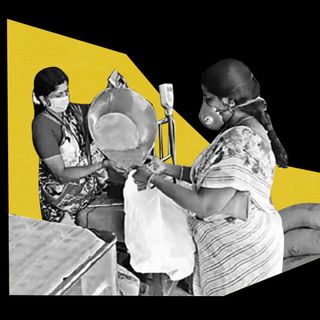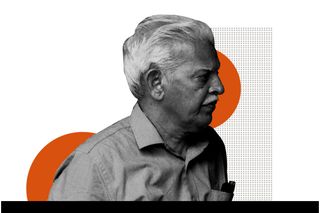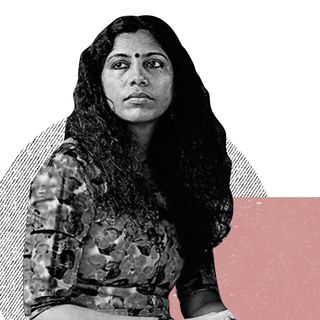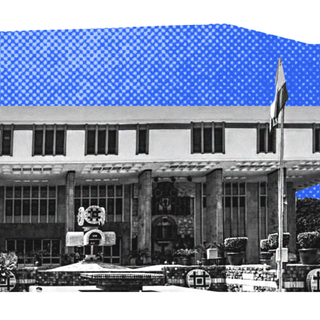
Why Suppressing Varavara Rao’s Poetry Furthers His Incarceration
Literature has been one of the oldest tools of revolution in India. Stifling the activist’s voice speaks to the state’s fear of words.

Varavara Rao, a Telugu poet and activist who is currently incarcerated under the Unlawful Activities (Prevention) Act, is seeing his voice being stifled even outside the prison system.
Penguin Random House, which was supposed to have published a translated collection of his life’s poetry earlier this year, has stalled publication indefinitely, citing the “nature of charges” leveled against the veteran revolutionary.
Varavara Rao has and continues to be, among the most persecuted poets in Indian history. He founded the literary magazine Srujana and was deeply involved with the Revolutionary Writers’ Association. His work revolved around prison violence, labor struggles, and human rights.
The publishing house reportedly cited “adverse legal advice” regarding the collection, titled Varavara Rao: The Revolutionary Poet. Rao was arrested along with fifteen other activists in the notoriously high-handed Bhima Koregaon case, where spyware and planting of fake evidence ensnared several human rights activists in prison for more than two years.
After the death of Father Stan Swamy earlier this year, Varavara Rao is the oldest among the “BK16” cohort and is reportedly ill. He had been granted medical bail for treatment in a hospital.
The charges of terrorism against Rao were leveled without a proper or fair investigation, as several investigations into the issue have shown. Even as he continues to languish without trial, it appears that his incarceration also extends to his body of work from before his imprisonment.
“It seems the legal opinion of this publisher (Penguin Random House India) said there may be problems with some poems…. They have not indicated what these (problems) are. What they indicated was that some of the poems have to be deleted because of this legal opinion, but anyway we will go for [a] second opinion,” N Venugopal, co-editor of the volume along with author Meena Kandasamy, told The Telegraph.
Venugopal and Kandasamy released a joint statement, reiterating their faith that the publisher wouldn’t indefinitely postpone the book’s release, and stated that they were awaiting a favorable second legal opinion. This second opinion, however, did not materialize, according to The Quint.
Related on The Swaddle:
Tell Me More: Talking Social Responsibility and Incarceration During Covid19 With Dr. Kafeel Khan
Nevertheless, the subject of Rao’s work makes it all the more important for it to see the light of day, especially while he still awaits trial. Arguably, the biggest threat that Rao poses is in his words, which speak truth to power. The pressure that publishers face while publishing his work is symptomatic of the ruling government’s paranoia about literature and its power to incite revolutionary fervor.
His poems, known for their revolutionary quality, have been instrumental tools of dissent against state excesses, and are important narratives containing the memory of violence, marginalization, and resistance. Varavara Rao has been arrested numerous times in the past for these ideas, including during the Emergency years. At each stage, his poetry was deemed a “culprit” in several conspiracy cases.
This time, however, chances of his release and recommencement of activism and public life appear to be slim — both given the government’s hostility towards him, and his age and medical issues. It is that much more important, therefore, that his work is published and that the public has a chance to access his ideas to understand why he remains such a formidable force in India’s democracy.
Indeed: “Like the blood which journeys from the heart back to the heart, all my words flow back into my silence. There, they sustain and nourish the health of my body. But that happens only when the body, the mind, and the heart are set to work. Now and then, I fear that I might forget words. I wonder if words have grown as dear as gold!” he once wrote, in his prison diaries. Remembering, reading, and reclaiming his words from the silence are more important now than ever.
The inextricability of Rao’s poetry and his incarceration is something that several other poets have noted. “We…state categorically that as young poets of this nation, we see the attack on Rao as an attack on all of us, our minds, our pens, and our views,” read a statement by young poets last year.
Rao once described his hope for freedom as “an eternal flame of hope flickering constantly in the winds of liberty and yet never for a moment ceasing its vigil.” For his work to be stalled at this stage in his life and this particular political moment, is to extinguish the flame.
Rohitha Naraharisetty is a Senior Associate Editor at The Swaddle. She writes about the intersection of gender, caste, social movements, and pop culture. She can be found on Instagram at @rohitha_97 or on Twitter at @romimacaronii.
Related


Why Deepa Mohanan Represents a Landmark Victory Against Institutional Casteism
